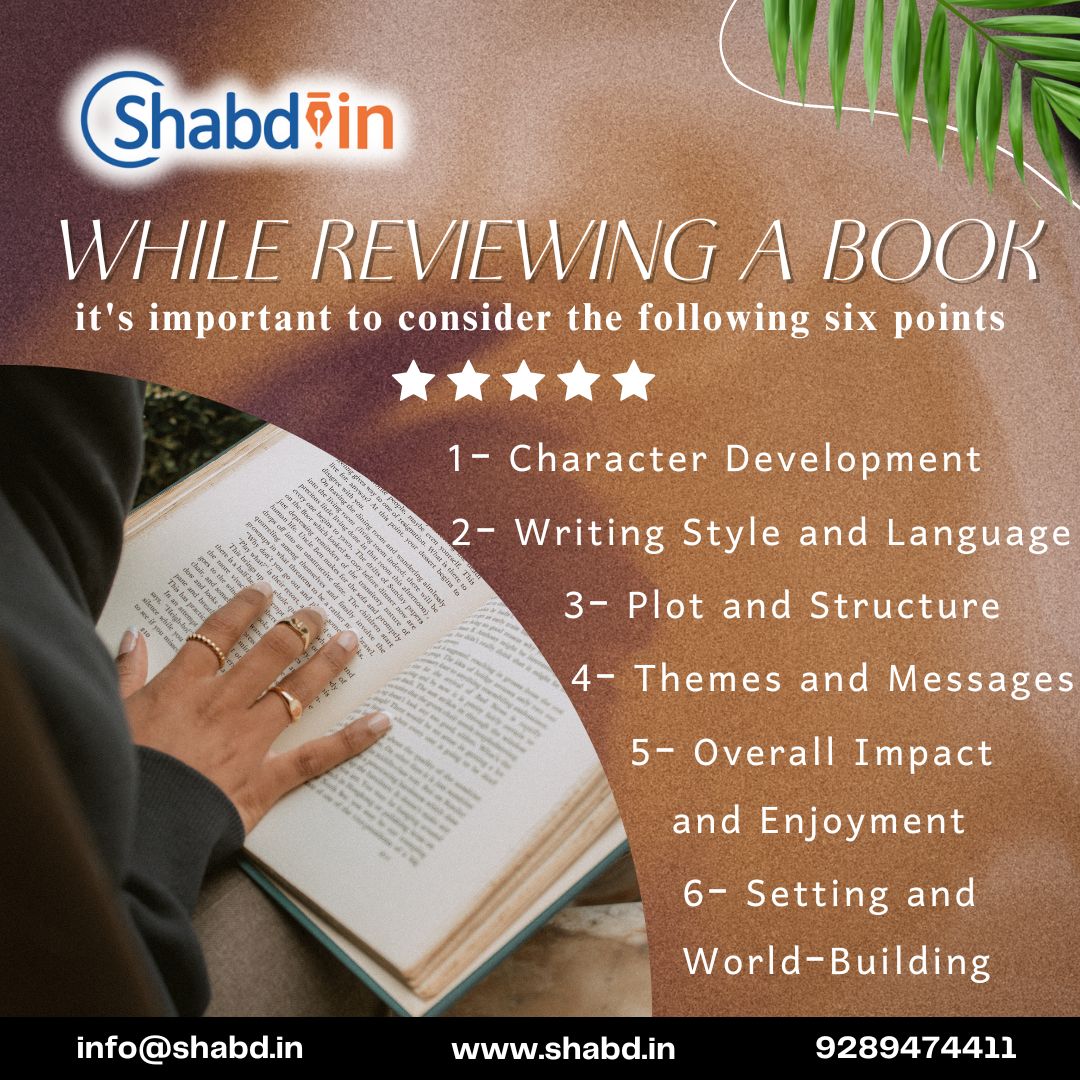Here’s a detailed description of each point to consider while reviewing a book:
1. Character Development
Evaluate the depth and relatability of the characters. Are they well-rounded with distinct personalities, flaws, and motivations? Do they grow or evolve throughout the story? Analyze the relationships between characters and how these dynamics contribute to the overall narrative.
2. Writing Style and Language
Focus on the author’s writing style—whether it’s descriptive, poetic, concise, or complex. Does the language suit the tone and genre of the book? Consider the author’s use of dialogue, imagery, and pacing. Is the writing engaging and easy to follow, or does it challenge the reader in a meaningful way?
3. Plot and Structure
Examine the flow of the story. Is the plot compelling and well-paced? Are the events and conflicts logical and believable? Analyze the structure—how the chapters or sections are organized, and whether the narrative unfolds in a linear or non-linear fashion. Check for twists, resolutions, and how well they are executed.
4. Themes and Messages
Identify the central themes or messages conveyed by the book. Are they thought-provoking, original, or relevant? Consider how effectively the author weaves these themes into the story. Do they add depth or invite reflection?
5. Overall Impact and Enjoyment
Reflect on your personal experience while reading. Did the book captivate you, evoke strong emotions, or leave a lasting impression? Was it entertaining, enlightening, or transformative? Assess its appeal to its target audience and its potential to resonate beyond it.
6. Setting and World-Building
Analyze the setting and its role in the story. Is the world vivid and immersive? Does the author use sensory details to bring locations and cultures to life? For fantasy or sci-fi, evaluate the creativity and consistency of the world-building, including its rules, histories, and intricacies.
These points together provide a comprehensive framework for a thoughtful and balanced book review.

